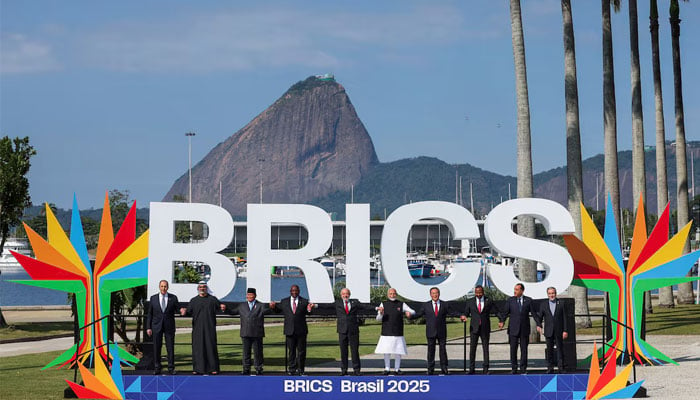Leaders from the BRICS group of developing nations gathered in Rio de Janeiro and issued a strong condemnation of attacks on Iran, Gaza, and Kashmir. The summit’s joint statement positioned the bloc as a defender of multilateral diplomacy, while indirectly criticizing US military actions and trade policies. Brazilian President Luiz Inacio Lula da Silva, in his opening remarks, drew a parallel between BRICS and the Cold War-era Non-Aligned Movement, emphasizing the need for autonomy and collective action as multilateralism faces new challenges.
The summit highlighted BRICS’ growing influence, now representing over half of the world’s population and 40% of global economic output. The bloc’s expansion—welcoming Indonesia as a full member and including countries like Egypt, Ethiopia, Iran, and the UAE—signals a shift toward a more multipolar world order. Lula warned of rising protectionism and the limitations of Western-centric forums like the G7 and G20, arguing that BRICS is increasingly filling the diplomatic space left by traditional powers.
Despite the absence of Chinese President Xi Jinping and the virtual participation of Russian President Vladimir Putin, the summit saw robust engagement from other leaders, including India’s Prime Minister Narendra Modi and South Africa’s President Cyril Ramaphosa. Discussions centered on reforming global governance, promoting inclusive growth, and strengthening cooperation among emerging economies.
As more than 30 nations express interest in joining BRICS as members or partners, questions remain about the bloc’s ability to maintain shared goals amid its growing diversity. However, the summit underscored BRICS’ commitment to a fairer international order, the reform of global institutions, and the pursuit of peace and stability in a rapidly changing world.














